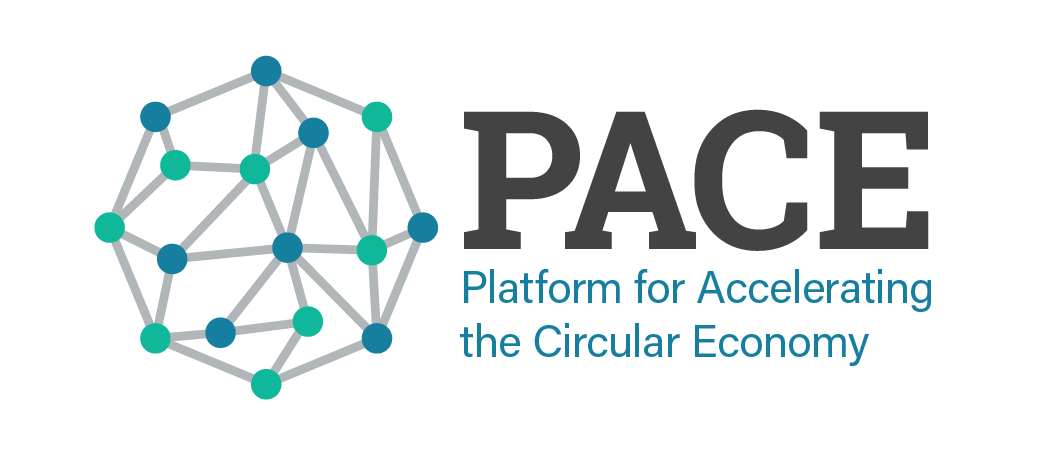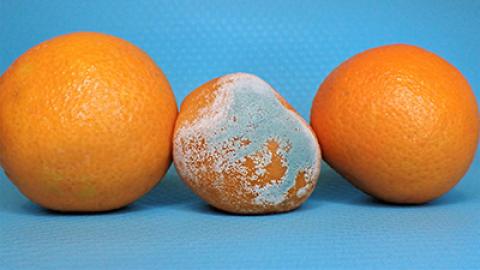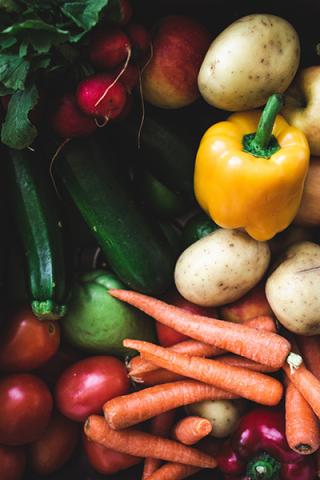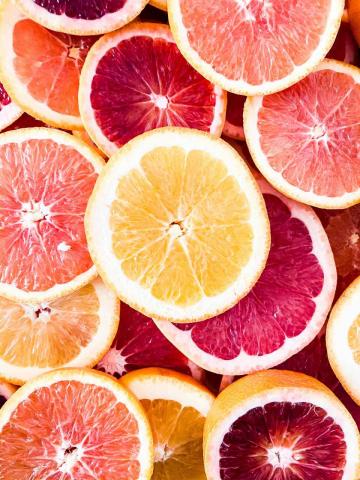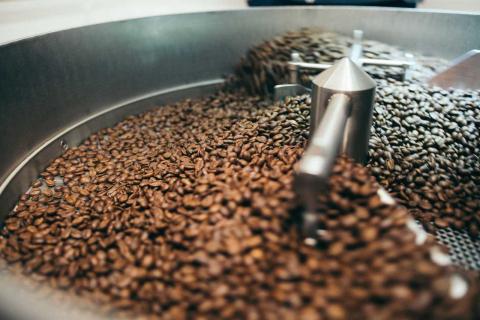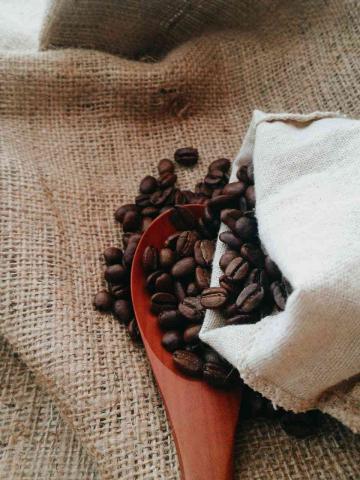Rabobank SDG 12.3 Loan
This Action aligns to the following Calls to Action from the Circular Economy Action Agenda for Food:
4. Better Understand Hotspots of Food Loss and Waste
6. Increase Investment in Food Loss and Waste Reduction
Ambition
The SDG 12.3 loan incentiveses clients by lowering interest rates when achieving the food waste reduction targets and by sanctioning underperformance. The purpose of the SDG 12.3 loan is to accelerate investments in tackling reducing Food Loss & Waste and therefore achieving the SDG 12.3: halving Food Loss & Waste by 2030.
The standardisation of the FLW-KPI can also be incorporated in syndicated loans as part of a KPI-set, in order to align with the SDG 12.3 target.
Objectives
- The product includes setting ambitious targets aligned with SDG 12.3, measurement ánd action
- The loan incentivices clients to monitor food waste closer and encourages them to keep looking for improvements to align with SDG 12.3
- With the SDG 12.3 loan, we also aim to contribute to raise awareness and behavioural change regarding FLW-reduction
Partners
Rabobank (PACE Partner)
• Methodology in line with the FLW Accounting and Reporting Standard.
• Assurance of KPI performance via own accountant based on the FLW A&R Standard
• Assistance for FLW reduction programs via specialised networks (WRI, WRAP & WUR)
Ekoplaza was the first company in the Netherlands to recieve a SDG 12.3 loan
Nutrient Upcycling Alliance (NUA)
Nutrient Upcycling Alliance (NUA)
PACE Partners Yara International and Veolia are contributing to the following Calls to Action from the Calls to Action from the Circular Economy Action Agenda for Food:
7. Reframe wasted food and byproducts as valuable resources
4. Better understand hotspots of food loss and waste
2. Scale productive and regenerative agriculture practices
Ambition
The Nutrient Upcycling Alliance (NUA) is a business-driven alliance of food value chain players to implement and promote the redesign of the whole value chain for nutrient upcycling in the agriculture and food sector. It aims to develop new business models for a circular agriculture by establishing nutrient recycling models for high quality fertilizer products. Through regenerative agriculture practices, unavoidable food waste is valorized, nutrient loop is closed, farmers’ profitability is increased in the transition, and Veolia’s subsidiary, Sede Angibaud’s expertise in the organic fertilizers with Yara’s knowledge in the market is also integrated.
Objectives
The NUA objectives are to increase yields, product quality, and reduce the environmental impact of agricultural practices. The NUA is being piloted in London to demonstrate the profitability and replicability of nutrient upcycling. The pilot monitors and quantifies the positive impact of circularity and regenerative agricultural practices as natural climate solutions.
Partners
Yara International, Veolia (PACE Partners)
#SinDesperdicio platform
This action aligns with the following Calls to Action from the Circular Economy Action Agenda for Food
6. Increase investment in food loss and waste reduction
4. Better understand hotspots of food loss and waste
7. Reframe wasted food and byproducts as valuable resources
Ambition
#SinDesperdicio platform aims to reduce food loss and waste in Latin America and the Caribbean by working on four axes: 1) Innovation: apply technology to reduce food loss and waste throughout the supply chain; from production to consumption. 2) Knowledge: develop studies and market analysis to measure and identify the causes behind food loss and waste. 3) Public policies: advance legislation and public policy to create an enabling environment that tackles food loss and waste. 4) Behavior: promote responsible and sustainable behavior along the supply chain.
Objectives
The #SinDesperdicio platform is: 1) supporting Argentina in minimizing food losses in the fruit and vegetable industry, 2) supporting Colombia with the implementation of food loss and waste strategies in food markets of the municipality of Garagoa and in the Central de Abastos of Villavicencio, and 3) developing a Playbook for Reducing Food Loss and Waste and a Food Loss and Waste Country Progress Index for Latin America and the Caribbean in 2021. Moreover, it supported the development of the 2nd Food Loss and Waste Reduction Summit for Latin America and the Caribbean that took place on the 17th and 18th of November 2021
Partners
Inter-American Development Bank, the Coca-Cola Company, World Resources Institute. Dow, Nestlé, Grupo Bimbo, Oxxo, Fundación Femsa, IBM, FAO, The Global Food Banking Network, The Consumer Goods Forum, UNEP, WRAP, World Resources Institute
Resonance’s support to the Circular Economy Action Agenda for Food
This Action aligns with the following Calls to Action from the Circular Economy Action Agenda for Food
10. Increase Information Accessibility and Data Utilization
Ambition
With this action, Resonance aims to support PACE’s Action Agenda for Food. Resonance led the development of this Agenda through a year-long consultative process with leading practitioners across the food system.
Objectives
Resonance is working to facilitate new cross-sector partnerships with leading businesses and global development actors, to take action for a sustainable food system in alignment with the agenda’s recommendations.
Partners
Resonance
Partners in Food Solutions
This Action aligns with the following Calls to Action from the Circular Economy Action Agenda for Food:
2. Scale productive and regenerative agriculture practices
Ambition
Partners in Food Solutions (PFS) aims to connect expertise with opportunity and to develop an underleveraged link in the food value chain - food processors and mills - to build and grow the entire African food economy. Implementing partners identify promising food companies in Africa and a network of world-class corporate volunteers provides them expertise, which ranges from facility design and product development to technical and business know-how. DSM has partnered with PFS to leverage DSM expertise and make an outsized impact on food security, nutrition and sustainable economic development in Africa while allowing DSM to develop the talents of current and future leaders through experience-based learning with African entrepreneurs.
Objectives
In 2020, 61 DSM employees worked to address the holistic needs of 48 entrepreneurial food companies in ten countries. By sharing expertise, they were able to assist these entrepreneurs in strengthening their businesses, delivering around 7 billion servings of nutritious food, and supporting a supplier base of 243,000+ farmers.
Partners
DSM, General Mills, Cargill, Buhler, Hershey, Ardent Mills, The J.M. Smucker Co.
Engineering Materials Product Portfolio
This Action aligns with the following Calls to Action from the Circular Economy Action Agenda for Food:
7. Reframe wasted food and byproducts as valuable resources
Ambition
DSM has developed a portfolio of innovative engineering materials with the ambition of addressing the increasingly concerning issue of plastic pollution, help save energy, reduce reliance on fossil fuels and drastically reduce the carbon footprint of the products people use every day. In particular, their EcoPaXX is a high-performance aliphatic, biobased polyamide made 70% from castor beans byproducts, which has been engineered for performance and with the objective of lowering the carbon footprint.
Objectives
Moving forward, DSM will continue to work with its partners to leverage emerging technologies and deliver a broader range of circular economy solutions. Their ambition is to offer bio- and/or recycled-based alternatives for our entire portfolio (containing at least 25% bio- and/or recycled-based content by weight in the final products) by 2030.
Partners
DSM
Circular Coffee from Peru: creating value across the chain
This Action aligns with the following Calls to Action from the Circular Economy Action Agenda for Food
7. Reframe wasted food and byproducts as valuable resources
4. Better understand hotspots of food loss and waste
Ambition
Circular Coffee from Peru: creating value across the chain is about promoting circular coffee cultivation practices in Peru. It aims to reduce the use of resources whilst creating an economically viable solution to manage waste material. In addition, this project increases food security by implementing an integral agricultural management system and producing fertilizer of the organic material which is currently discarded. Finally, the profits deriving from the recycling of used coffee grinds collected in the Netherlands will contribute to the creation of a circular coffee fund (CCF) that can be used as an agricultural loan for farmers in Peru.
Objectives
The objective is to stimulate upcycling of coffee waste in the Netherlands and Peru and create a Circular Coffee Fund for farmers for circular coffee practices. By training 1,600 farmers on circular coffee practices and implementation, this project introduces circularity principles in the coffee value chain from Peru to the Netherlands. Since its start in 2019, the Circular Coffee initiative has already led to a 20% increase in coffee production, a 10% income increase, an 80% water reduction, 1600 farmers trained on circular cultivation, and the upcycling of 2166 MT of coffee ground.
Partners
The Government of the Netherlands, Netherlands Enterprise Agency, Cuancas del Huallaga Asociacion de Productores Agropecuarios, Servicio Nacional Forestal y de Fauna Silvestre - SERFOR, Olam Agro Peru S.A.C., Solidaridad Peru, Koninklijke Douwe Egberts B.V., Stichting Solidaridad Nederland
Build Back Better: Using Green and Digital Technologies to Reduce Food Waste at Consumer Level
PACE Partners IRP and UNEP are contributing to the following Calls to Action from the Circular Economy Action Agenda for Food:
4. Better understand hotspots of food loss and waste
6. Increase investment in food loss and waste reduction
7. Reframe wasted food and byproducts as valuable resources
Ambition
Build Back Better aims at supporting countries in harnessing green technologies to reduce food waste at consumer level and to Build Back Better from the COVID-19 pandemic. It also contributes to the attainment of the SDGs and climate goals.
Objectives
Within Build Back Better, the objectives are threefold:
-
Diagnose the food waste problem in five cities (Bangkok, Kampala, Belgrade, Bogotá and Doha): working with local authorities to develop urban food waste baselines, supporting food waste measurement and undertaking local policy analysis and stakeholder mapping.
-
Understanding different enablers: analyzing different enablers and successful business models, proposing a tailored intervention package to address food waste issue at consumer level.
-
Engaging with target groups for change in policy, practice and behavior: devising strategies for engaging critical food behavior actors, translating related evidence into easily accessible communication materials, developing engagement and dissemination strategies and identifying partnerships for scaling up impacts.
The Report ‘Reducing Consumer Food Waste Using Green and Digital Technologies’ has been published in 2021 to improve understanding of how green and digital technologies could be used to reduce consumer food waste and what could be done to further unlock this potential.
Partners
IRP, UNEP, Global Opportunities for Sustainable Development Goals (GO4SDGs), One Planet Network, Sustainable Infrastructure Partnership (SIP), UNEP DTU Partnership (UDP), Climate Technology Centre & Network (CTCN)
Pagination
- Page 1
- Next page
